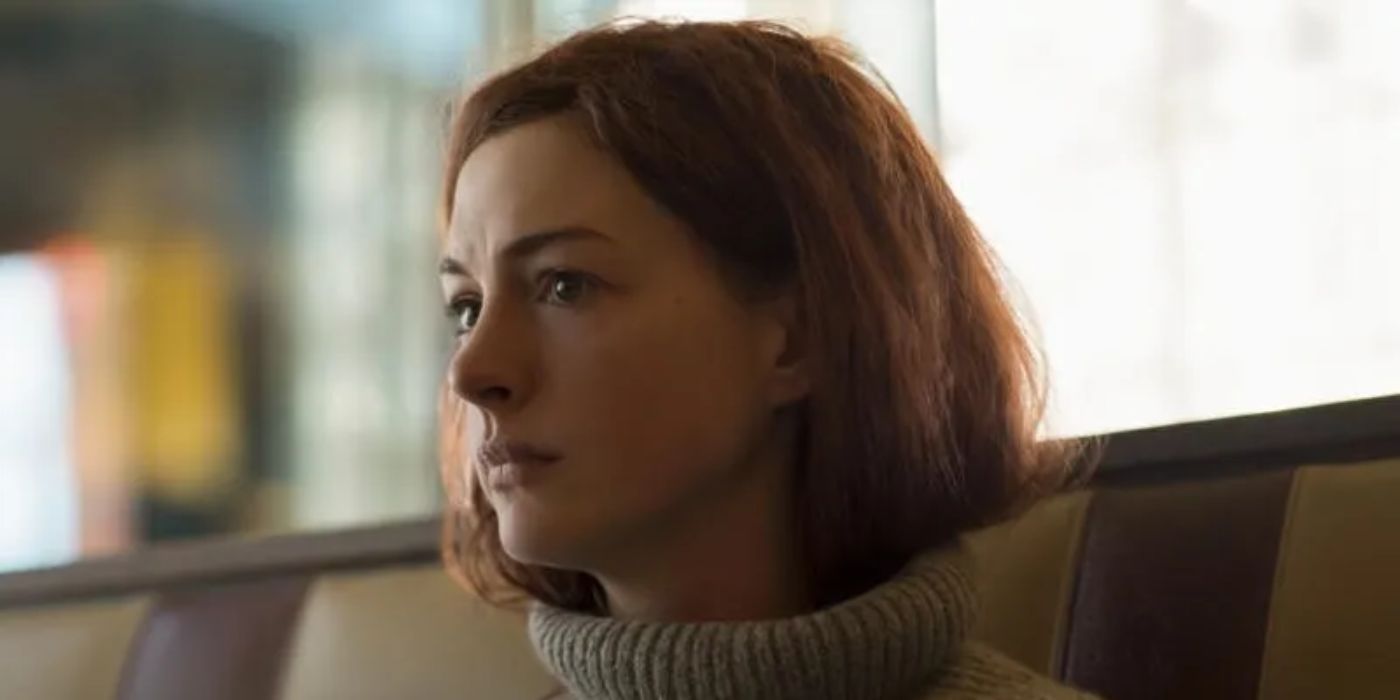Before ‘The Idea of You’, the actress played a vulnerable romantic lead in this series.
The Big Picture
- Hathaway shines in
Modern Love
portraying a bipolar lawyer, showcasing mania and depressive states realistically. - The role of Lexi allows Hathaway to display the highs and lows of bipolar disorder convincingly in a 30-minute episode.
- By the end of the episode, Lexi embraces her bipolar disorder, leading to newfound freedom and authenticity in her relationships.
It is no secret that Anne Hathaway knows what it takes to play a romantic lead. From a clever writer in love with her best friend in One Day to a 40-year-old single mom falling for a young musician in The Idea of You, the actress has charisma in abundance and captivates audiences film after film. Yet, when looking back at some of her most notable performances within the romance genre, it would be impossible to disregard her short-lived TV credit in Modern Love. In the anthology series based on the New York Times column, she plays Lexi, an accomplished lawyer whose path to finding her soulmate doesn’t come easy given her struggles with bipolar. This role might’ve lasted only 30 minutes, but it still managed to go in the books as one of Hathaway’s best portrayals to date. After all, in a limited amount of time, she was able to accurately convey the mood swings attached to this mental illness and how it reflects on a person’s fluctuating love life.

Modern Love
- Release Date
- October 18, 2019
- Cast
- Anne Hathaway , Tina Fey , Andy Garcia , Dev Patel , Sofia Boutella
- Main Genre
- Comedy
- Seasons
- 2
- Streaming Service(s)
- Prime Video
Anne Hathaway’s Character Is Introduced as a Fashionable Lawyer Looking for Love
Inspired by Terri Cheney‘s column “Take Me As I Am, Whoever I Am,” Season 1, Episode 3 of Modern Love starts with Lexi at home in front of her computer, trying to find the right way to describe herself on a dating website. Instead of going for the clichés surrounding her career and looks, she opts for sharing about meeting a guy (Jeff played Gary Carr) at a supermarket and how their brief fling led her to find the strength to come out as bipolar. At the beginning of the episode, Hathaway’s character is exuding joy, wearing a sparkly top and long skirt to match her pink and fluffy coat. She wears a night-out outfit during the day on a regular supermarket outing just because she wants her look to match her high spirits. When she chats with Jeff near the fruit aisle, she is beaming with energy, which instantly captivates him and leads him to invite her out for coffee. When Lexi leaves their coffee date and arrives at the law firm, she is still just as excited about doing her work as she was about roaming the supermarket. With so much happiness, it is hard for viewers to predict that the protagonist could ever be depressed. Yet, that is far from the truth once she arrives home, and her mood shifts drastically.
The Actress Was Able to Showcase Lexi’s Happiest and Most Vulnerable Sides in ‘Modern Love’
Throughout Hathaway’s onscreen career, she’s had the chance to deliver several emotional scenes (especially in her Oscar-winning performance in Les Misérables), but rarely did she have to showcase mania and depression in a matter of minutes. As Lexi, Hathaway shows both the utter excitement that comes when a person with bipolar is having a good day and the excruciating sadness that drives them to stay in bed for days on end. From smiling and wearing an eye-catching outfit to changing into sweats and lying underneath the covers, it is painful to see the main character dealing with these mood swings daily. When Jeff shows up at her doorstep for their second date, she is the opposite of thrilled, not because she wants to sabotage their night together, but because she is just too sad to be good company. Clueless about her condition, Jeff feels like he wasted his time hanging out with her since she wasn’t happy or wanted to engage in conversation. At the end of their second outing, it is clear that Lexi’s depressive state drove him away, like most men she’d met prior, and that didn’t stick around.
A few days later, Lexi gets up in high spirits again, committed to calling Jeff and repairing their disastrous date. Her excitement convinces him to give her a second chance, agreeing to eat at her place later that night. Just as joyful as the start of the episode, she cleans her apartment, doubles her productivity throughout the day, and dresses to impress on her third date with Jeff. As she is about to finish up her makeup in the bathroom, Lexi instantly resorts to a depressed state and, despite trying to fight back her emotions, she falls to the ground and cries while her love interest knocks on the door.
In 30 Minutes, Anne Hathaway Delivers a Heartfelt Portrayal of a Woman With Bipolar
Lexi isn’t an easy character to portray onscreen, especially for a half-an-hour duration. Yet, Hathaway was able to tackle the nuances tied to this role in an exceptional way, really embodying the struggles that several women face on their journeys with bipolar. In an interview with Glamour in 2019, Terri Cheney praised the actress for playing her in the anthology series and not glossing over her condition:
“Mania is often charming, but depression is another story. It’s sometimes an off-putting experience and very hard to describe or portray. Anne captured it in a way that not only showed its anguish, but also moved the viewer to empathy.”
The scene that best illustrates what Cheney says about the performance, leading viewers to empathy, is the episode’s closing scene, in which Lexi shares her mental health hardships with a co-worker. This moment is significant in the episode because the character never opened up about her bipolar diagnosis with anyone else in her life other than herself and her parents. Fearful of rejection, she shielded everyone around her from the truth, and it was affecting all the relationships in her life. When Lexi finally tells her colleague what is really going on every time she doesn’t show up at work, she is suddenly overwhelmed by a sense of freedom to be herself. This interaction leads her to finally embrace bipolar as part of who she is, and this benefits her life in countless ways. When she finishes writing her dating profile (the one she began writing at the start of the episode), it is clear that the protagonist wants her next love interest to be aware of her highs and lows before choosing to enter a relationship with her. The way Hathaway weaves the character’s journey from start to finish, from being overburdened by mood swings to becoming a person who fully embraces bipolar, makes this performance a highlight of her storied career.
Modern Love is available to stream on Prime Video in the U.S.
This article was originally published on collider.com



